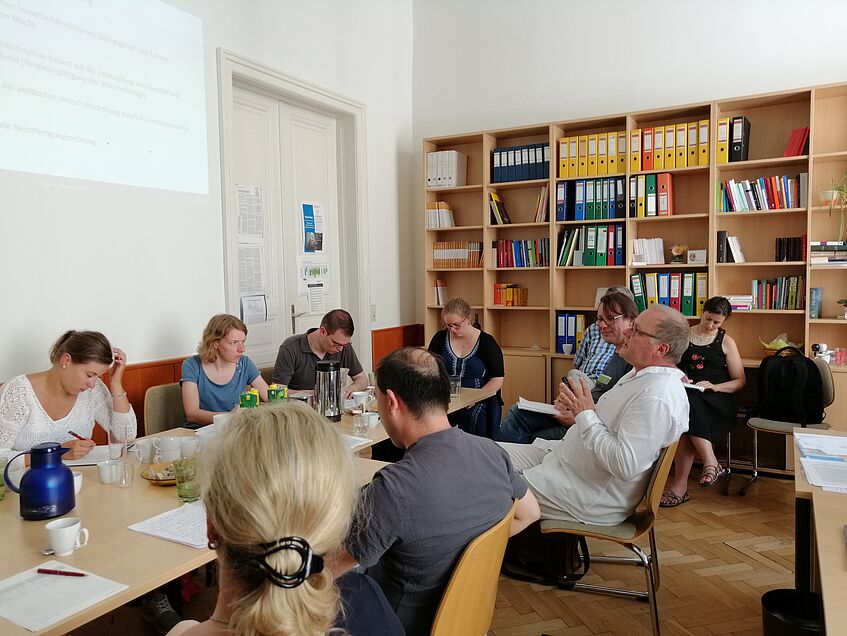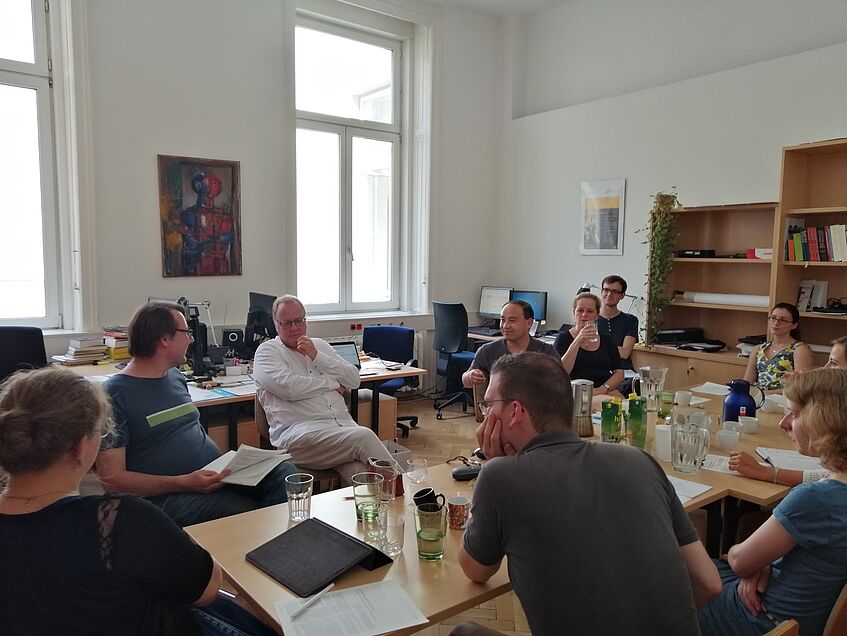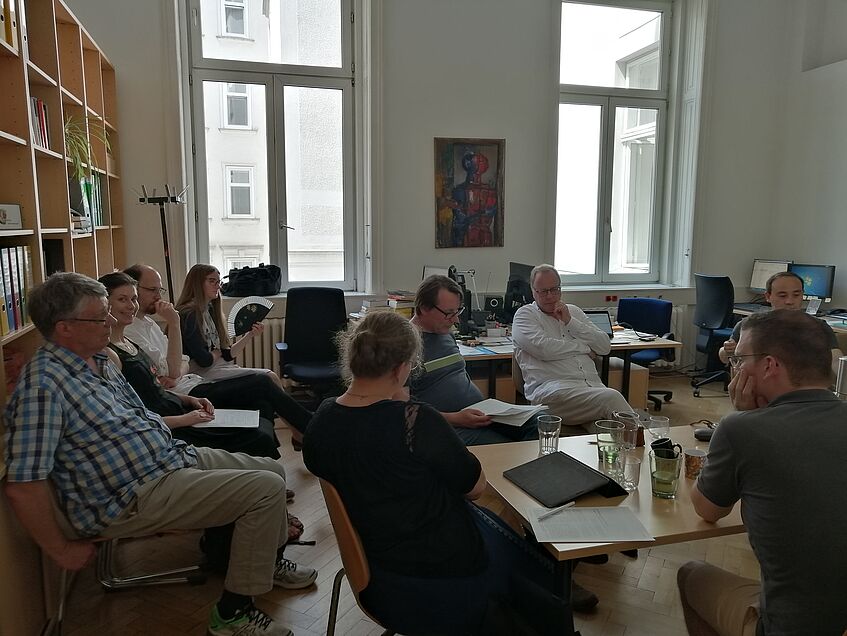Workshop with Georg Essen “Fragile Souveränität. Eine politische Theologie”, Jun 12 2019



Workshop with Georg Essen “Fragile Souveränität. Eine politische Theologie”, Jun 12 2019
On June 12th Georg Essen (University of Bochum) held a workshop on his current book project entitled “Fragile Souveränität. Eine politische Theologie” [trans. „Fragile Sovereignty. A Political Theology”]. His project departs from the question of how religions can affirm political concepts and achievements of the modern constitutional state, like freedom of religion, tolerance, and people’s sovereignty in diverse constitutional cultures. In this context, Essen raised the question if the traditional catholic narrative of the church catching up with modernity (in German nachholende Selbstmodernisierung) since Vatican II is still plausible. Essen stressed that until today there is no affirmation of the principle of people’s sovereignty by the Catholic Church. The relation between the Catholic Church and liberal democracy remains unreconciled until today. This issue got even more serious since Orban presents the anti-liberal democracy under the cloack of a “Christian democracy”.
Essen stressed that in fact, the approval of the principle of people’s sovereignty would be an important model for the Church in order to affirm the constitutional achievements of modernity. In contrast to Johann Baptist Metz, who is an important point of reference for him, Essen conceptualizes political theology not merely as a critique of societal practices, but as a way in which the principle of autonomy can be grounded also theologically.
Referring to Böckenförde, the pre-political foundations of the state were brought up for discussion as well as the genealogy of the modern state in the light of the conditions of its origin. In this context, it is crucial to consider the fragile dimension of law and sovereignty, while at the same time, the importance and effectiveness of juridification must not be underestimated. Moreover, it is important to realize that modern law rests upon the separation of legality and morality. In other words, its legitimation depends on a formal character of the legal statute, but not on truth or on moral grounds. Hence, the benefit of modern law is also its disadvantage. On the one hand, the separation of legality and morality is an important manifestation of freedom, on the other hand, democracy also demands pre-legal and pre-political conditions, like recognition and solidarity in order to be realized. Constitutional democracy therefore cannot be the only source of normativity, but requests that other resources of normativity, for instance ethics and history have be considered as well.
The principle of people’s sovereignty understood as the one type of sovereignty that can only be legitimized by the ones who are subjected to it, was characterized in its fragile and, at the same time, effective dimension, which still have to be fully acknowledged by religions.
